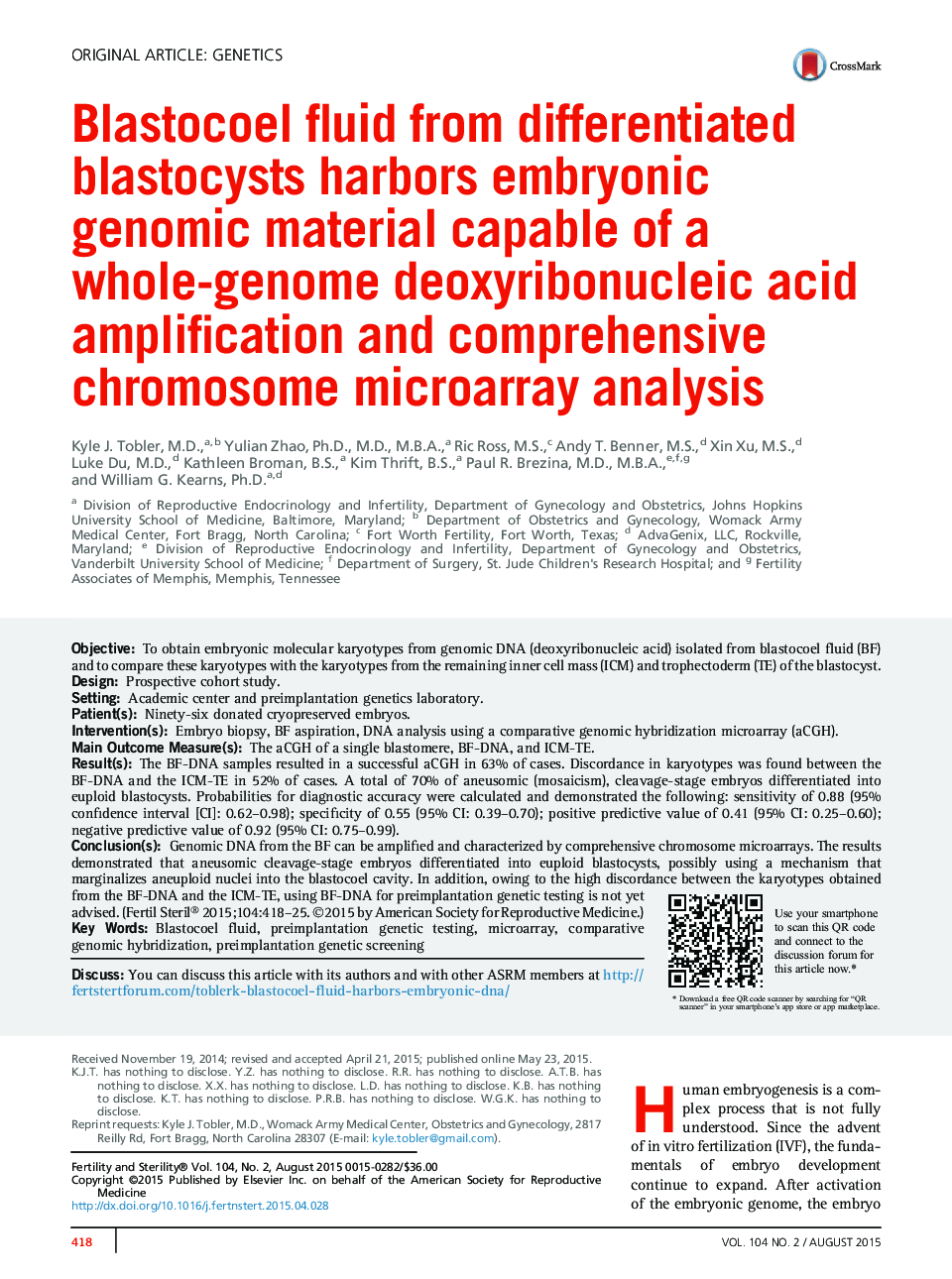| Article ID | Journal | Published Year | Pages | File Type |
|---|---|---|---|---|
| 3934037 | Fertility and Sterility | 2015 | 8 Pages |
ObjectiveTo obtain embryonic molecular karyotypes from genomic DNA (deoxyribonucleic acid) isolated from blastocoel fluid (BF) and to compare these karyotypes with the karyotypes from the remaining inner cell mass (ICM) and trophectoderm (TE) of the blastocyst.DesignProspective cohort study.SettingAcademic center and preimplantation genetics laboratory.Patient(s)Ninety-six donated cryopreserved embryos.Intervention(s)Embryo biopsy, BF aspiration, DNA analysis using a comparative genomic hybridization microarray (aCGH).Main Outcome Measure(s)The aCGH of a single blastomere, BF-DNA, and ICM-TE.Result(s)The BF-DNA samples resulted in a successful aCGH in 63% of cases. Discordance in karyotypes was found between the BF-DNA and the ICM-TE in 52% of cases. A total of 70% of aneusomic (mosaicism), cleavage-stage embryos differentiated into euploid blastocysts. Probabilities for diagnostic accuracy were calculated and demonstrated the following: sensitivity of 0.88 (95% confidence interval [CI]: 0.62–0.98); specificity of 0.55 (95% CI: 0.39–0.70); positive predictive value of 0.41 (95% CI: 0.25–0.60); negative predictive value of 0.92 (95% CI: 0.75–0.99).Conclusion(s)Genomic DNA from the BF can be amplified and characterized by comprehensive chromosome microarrays. The results demonstrated that aneusomic cleavage-stage embryos differentiated into euploid blastocysts, possibly using a mechanism that marginalizes aneuploid nuclei into the blastocoel cavity. In addition, owing to the high discordance between the karyotypes obtained from the BF-DNA and the ICM-TE, using BF-DNA for preimplantation genetic testing is not yet advised.
